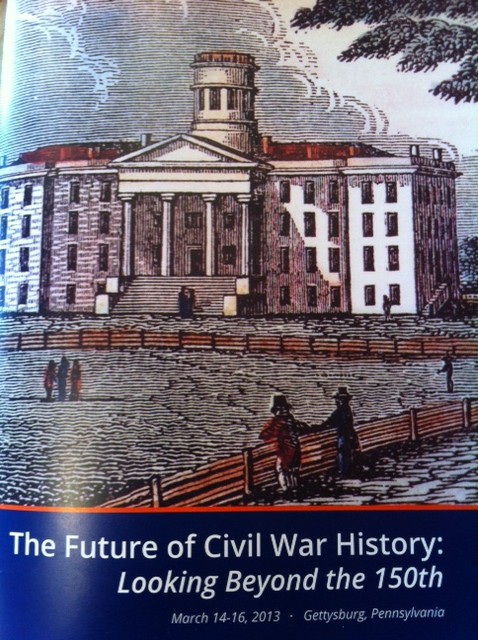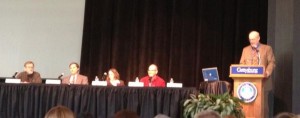Civil War Conference at Gettysburg College
Posted By Jake Wynn on March 17, 2013
The Civil War Institute at Gettysburg College held a conference gathering together many of the nation’s premier academic and public historians from Thursday, March 14 through Saturday, March 16.
The focus of this gathering, titled The Future of Civil War History: Looking Beyond the 150th, centered on examining the ways Civil War interpretation may change in the coming years. The Institute, combined with the force of the Gettysburg Military Park, succeeded in bringing in many of the leading minds in both academic and public history.
Topics examined included the changing dynamics of Civil War history in the classroom, on the battlefields, and in the hearts and minds of the general public. Presenters included notable Civil War historians, National Park rangers and teachers, all of whom practice Civil War history.
For the concentration of this piece, I will report and analyze the interesting roundtable discussion on the first day of the conference.
The first session of the conference zeroed in on some of the most deeply held misconceptions surrounding the military history of the Civil War. Gettysburg professor and author Dr. Allen Guelzo moderated the session which delved into the typical myths of Civil War combat.
Dr. Guelzo introduced the three most common myths of the Civil War.
- Civil War soldiers were equipped with weapons they did not understand.
- The idea of total war first reared its head during the Civil War.
- Civil War commanding officers came from two different styles of warfare: the earlier Napoleonic style and the idea of fighting for ground.
Guelzo then corrected these myths, connecting them to our concepts of American exceptionalism and the belief that we were the origin of many military concepts of the mid-19th century.
Four speakers exemplified their areas of knowledge, including two from the National Park Service and two traditional academic historians. These topics explored under this session included the audience for Civil War related media such as books and film, the teaching of history in public schools, and the overlooked study of Civil War logistics.
The nature of this conference allows for many of the most important public historians to intermingle and discuss ideas for breaking new ground in terms of the Civil War. It provided the opportunity to analyze our own commemoration of the 150th anniversary of the Civil War as it is happening. This point is vital. As one of the speakers said, “how we handle the Civil War during the 150th Sesquicentennial will go a long way towards creating interest in future generations.”
A recap of the event can be found through Twitter by using #cwfuture. This idea and its successful utilization was the highlight of the conference.
 ;
;




Comments